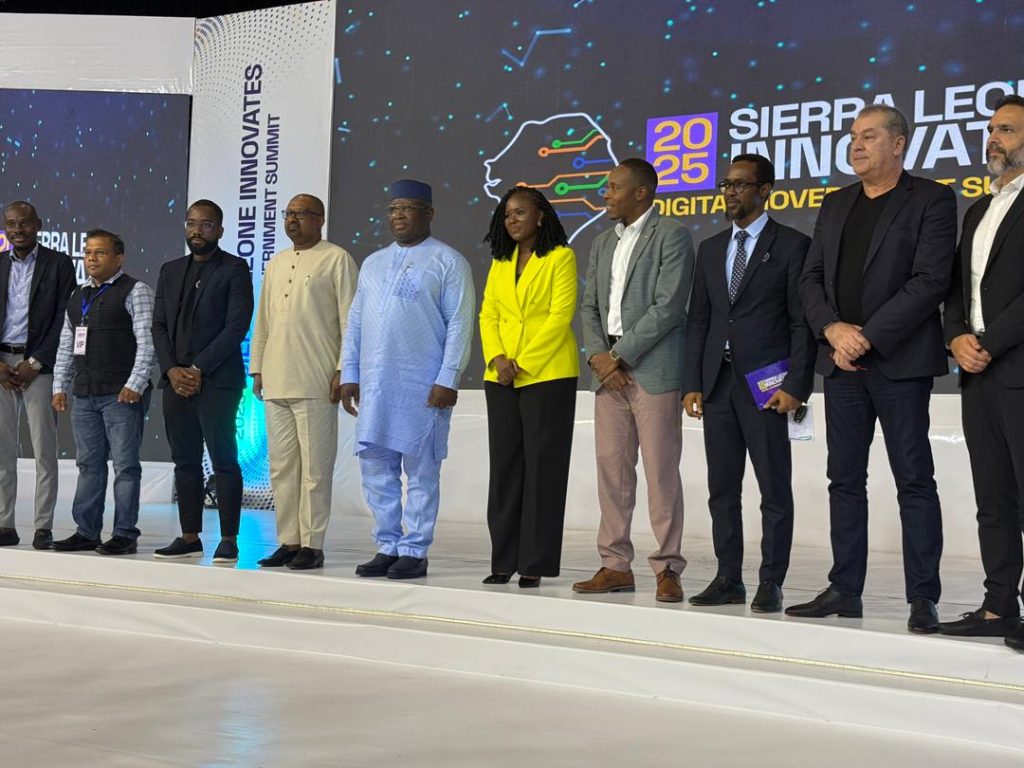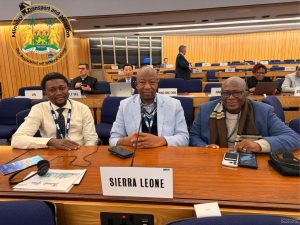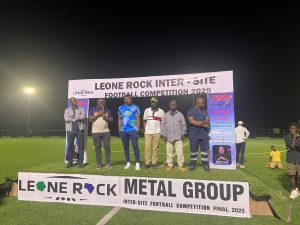One Mobile Launches West Africa’s First Open-Access 5G Network

Four and a half years ago, our digital lifeline was hanging by a thread.
The submarine cable landing station was limping along, international capacity hovered around 60 Gbps, and outages were a daily frustration.
When we were entrusted with that landing station, an entire nation held its breath, hoping for something better.
We got to work.
⦁ We repaired what was broken, modernized what was outdated, and scaled capacity to over half a terabit.
⦁ We added true redundancy—so when faults hit Ghana or Côte d’Ivoire, Sierra Leone barely blinked.
⦁ Wholesale prices plummeted. Reliability soared.
But we quickly realized something crucial: bandwidth sitting at the coast means nothing if it can’t reach homes and businesses inland.
While mobile penetration—thanks to companies like Orange and Africell—was growing, fixed broadband was lagging far behind. So we built the missing middle layer: 2,000 kilometers of open-access fiber.
I remember back in 2018, I was quoted $3,000 just to get fiber to my house—and $400 a month for a 9 Mbps connection. Today, you can get 100 Mbps, no installation fee, for about $50 a month.
That’s not just cheaper internet—that’s opportunity priced within reach.
Next, we asked: What happens after people connect? How do they participate in the digital economy?
Mobile money wallets were thriving—but each one was a closed ecosystem. So we built bridges:
We connected banks, cards, wallets—into an inclusive fintech platform that allows a farmer in Kono to swipe a Visa card, or a student in Freetown to receive payment for online work in minutes.
The fact that Sierra Leone’s creative community can now get paid for their work tells me we’re succeeding.
From the outside, these steps may seem scattered—a landing station here, a fiber ring there, a fintech platform in between.
But every milestone followed a clear roadmap: Open Access. Open Possibility.
To our people:
⦁ Our Chief Operating Officer (possibly a Martian) assembled a dream team who chose sweat over sleep.
⦁ Our CTO refused to accept “impossible” as an answer.
⦁ Our finance team stretched every Leone,
⦁ Our supply chain team spun miracles from shortages,
⦁ And our engineers climbed, spliced, and soldered through rains that would scare a fisherman.
So, what came next?
With immense pride—and a bit of relief—I can say:
Sierra Leone now boasts the first open-access, 5G Standalone network in West Africa.
Powered by Nokia, this network is faster, more affordable, and more reliable than most systems globally. And like everything we build—it runs on renewable energy, thanks to our partners at CrossBoundary.
A mix of new towers, smart rooftop placements, and co-location with some MNO partners has enabled us to create something bold:
An open-access, Open RAN infrastructure ready for any operator—incumbent, startup, or even a student building the next big thing from a dorm room.
This isn’t just infrastructure.
This is a platform for competition, innovation, and the dreams of the dreamers.
Open access—that’s the operative phrase. And a favorite of our unstoppable Minister of Communication.
But none of this could happen without vision.
To the Government of Sierra Leone—thank you.
For believing in what this country can become.
For your persistence, your courage, and your vision of a future powered by technology.
You gave us—and our investors—the confidence to take these risks, to make these moves.
So now, to every Sierra Leonean, I say:
Our digital runway is now as fast and smooth as any in the world.
It should make no difference whether you’re in London, Dubai, New York City—or Freetown.
5G has arrived.
Step onto it. Build on it. Break things—then build them better.
Let’s watch what the next generation will create.
Thank you for trusting us, challenging us, and celebrating with us.
Enjoy the summit—let the packets fly.





